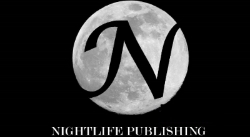Watching the sales
numbers for your book is a normal part of the publishing process. Any
publisher, independent or traditional, wants to know how their product is
performing in the market. If you just threw your book onto Amazon and then
never checked to see if it made money, you might exist at the height of
artistic freedom. But you would be ignoring the corporate manager and salesman functions
of the independent publisher, (See What is the
Difference between Self-Publishing and Independent Publishing?).
At the same time, obsessing your sales numbers can be an
emotional rollercoaster that does little to improve your craft or your business.
While I am often guilty of paying too much attention to the numbers, I think
there is a benefit to looking at them the right way. I'll try to explore both
the right way and the wrong way here.
Why We Look at the
Numbers
JP Morgan once said “A
man has two reasons for doing anything: a good reason and a real reason.” That
has direct application for independent sales numbers. The good reason we check the sales page for our books is for financial
feedback. High sales are the most basic indicator of the positive
performance of our product. Reaching the top of the bestseller list is an
indirect comparison between our work and that of our peers. Good sales indicate
a successful marketing campaign, and possibly, a positive revenue stream (See Profit and Loss Statements for Independents).
But the real reason I
look my sales numbers has little to do with business related issues. My primary motivation is ego gratification.
I see high sales as a validation of my work. I equate open emails and FB likes
as social proof and recognition. I react to reviews of my books and comments on
my articles as people giving me attention and support. It might be
narcissistic. It might not have anything to do with sales really, but I would
be lying if I didn't admit to the emotional component of watching my sales
charts. This reality creates a potential problem, but the first step in solving
a problem is to admit that it exists.
How to Look at Your
Sales Numbers
Whether your sales are
high or low, the second most important benefit to looking at them (after seeing
how much money you made) comes from viewing them in relation to the other
metrics of your book.
If you have an e-mail
list, social media activity, an advertising campaign or some other marketing
vehicle, you can look at the relationships between those activities and your
sales. As you develop your brand over
time, you can try to manipulate the other metrics to try and increase sales.
Do you get a bump in sales when you have a blog tour? Is the bump higher when
you run an ad campaign? Which one offers a better return on investment? Looking
at sales in comparison to your other efforts is an aspect of social
experimentation that is a fundamental part of independent publishing. (See What is the Difference between Self-Publishing and
Independent Publishing?).
When we look at sales
numbers in this context, we only need to look at them periodically, such as
when we are trying to measure the impact of a particular activity. When we're
trying to track our sales over time, a monthly review of sales makes perfect
sense. If we are using our sales numbers as a financial feedback system, we're
doing our jobs.
How Not to Look at Sales
Numbers
Whether your sales are
high or low, they should not affect your writing schedule or your outlook on
writing in general. Looking at your sales numbers as you sit down for a writing
session can be counterproductive no matter how many books you sold. Checking
your sales numbers several times a day for a book that you just released is not
a good use of your time. Comparing your sales to another author in the abstract
can be self-destructive. Any rumination
about sales that keep you from writing should be avoided at all costs. I
feel all of these statements are accurate because I have been guilty of each
and every one of them in multiple occasions.
Keep Writing
Sales are an important
indication of your commercial success as an independent. But it is not the only
measure of success (See How Do You Define a
Successful Writer?). Even celebrated authors have not achieved the
financial success that frees them from their daily routine (See Do You Really Need to Quit Your Day Job?).
Writers, like all artists, are driven at least in part by ego. It is a natural
expression of the ego to seek validation in things like sales numbers. As long
as the hunger for validation doesn't eat the desire to create, obsessing over
sales numbers isn't a big problem. Just remember to write in those moments
between refreshing the screen to see how many more copies you sold in the last
ten minutes.
Have fun.
Gamal

